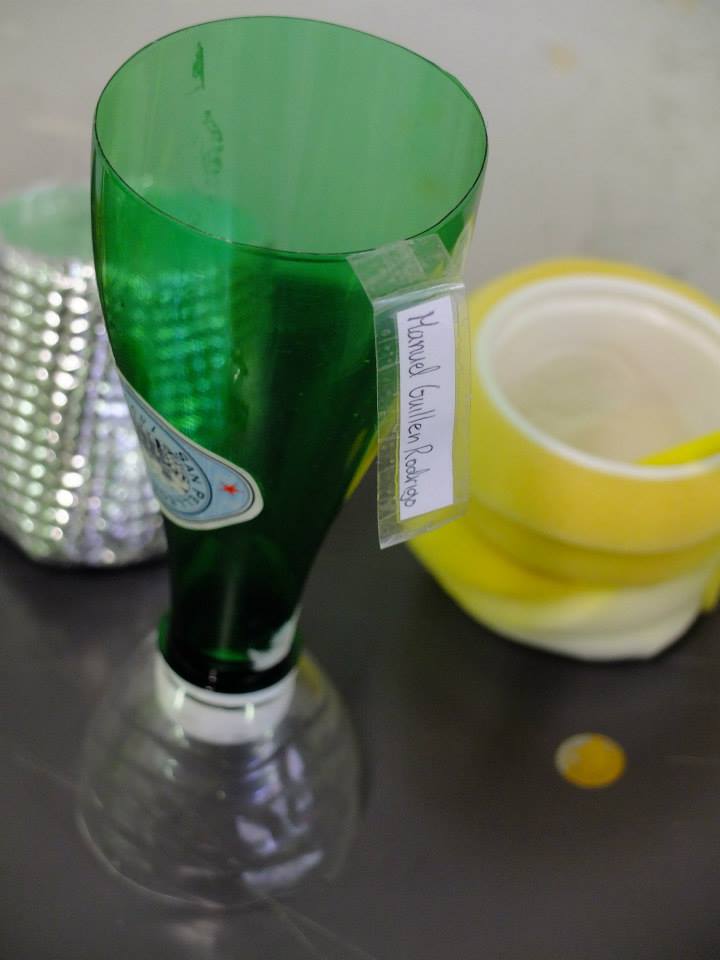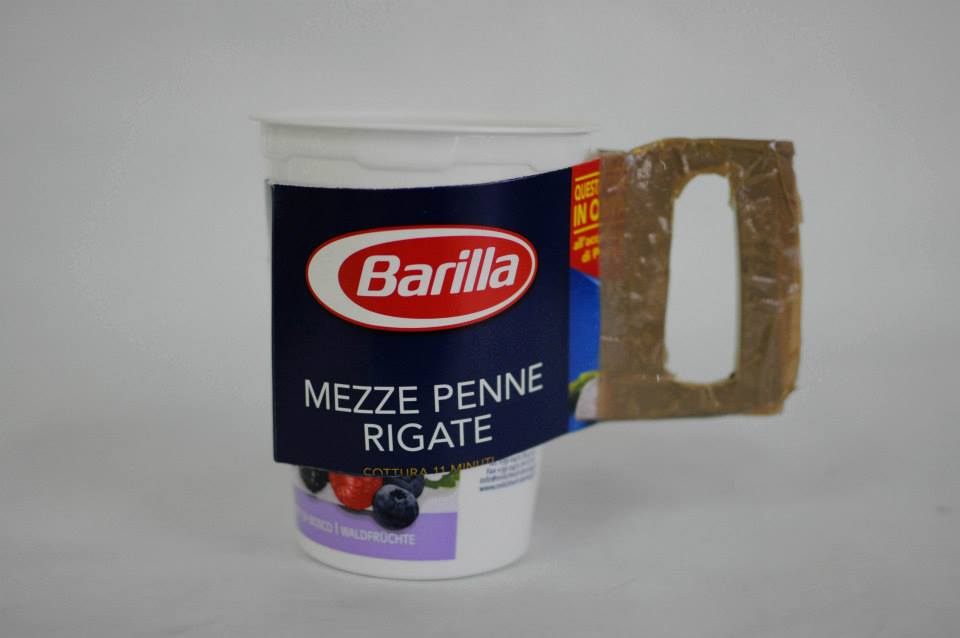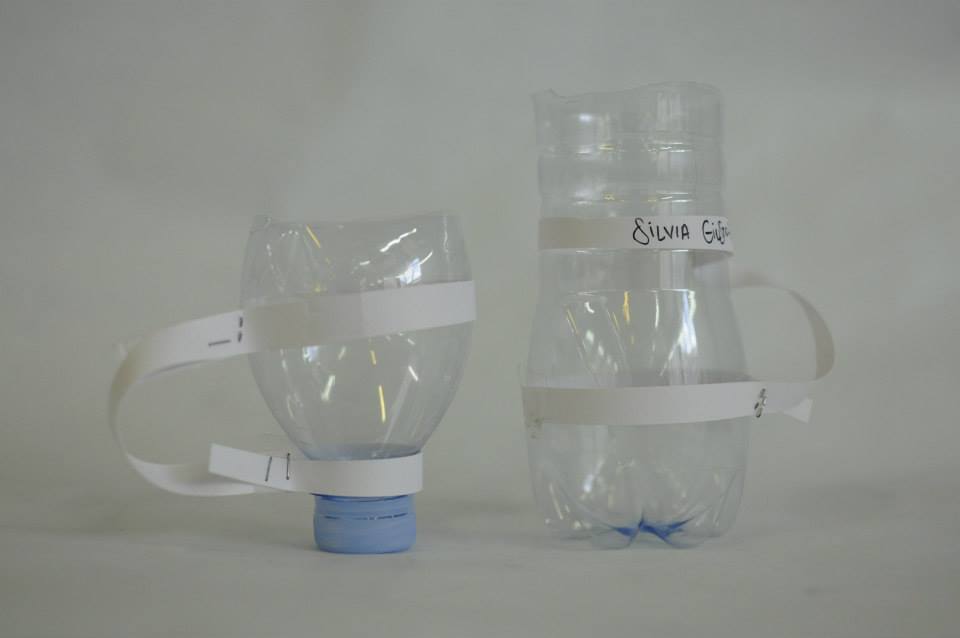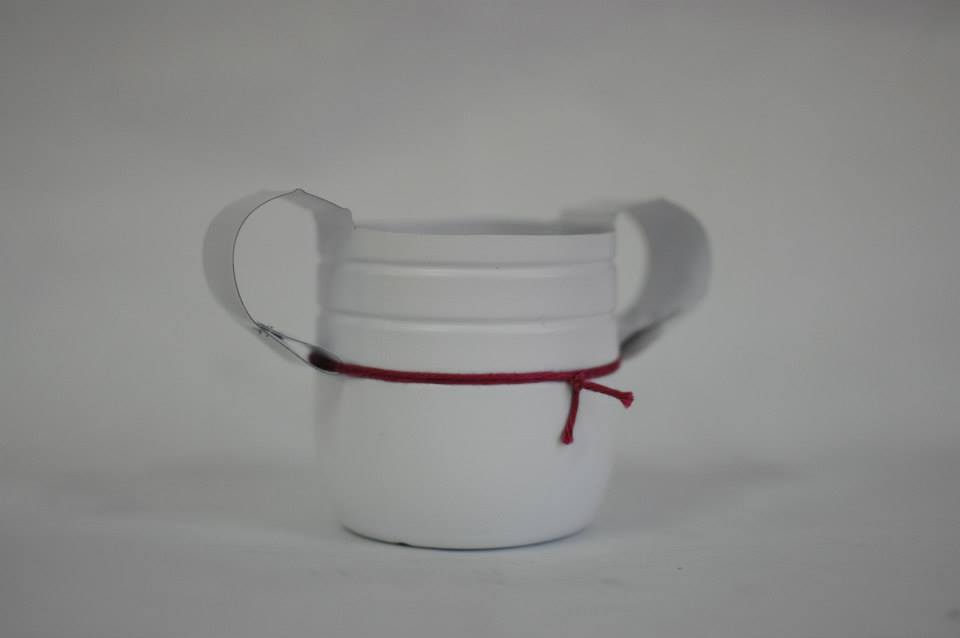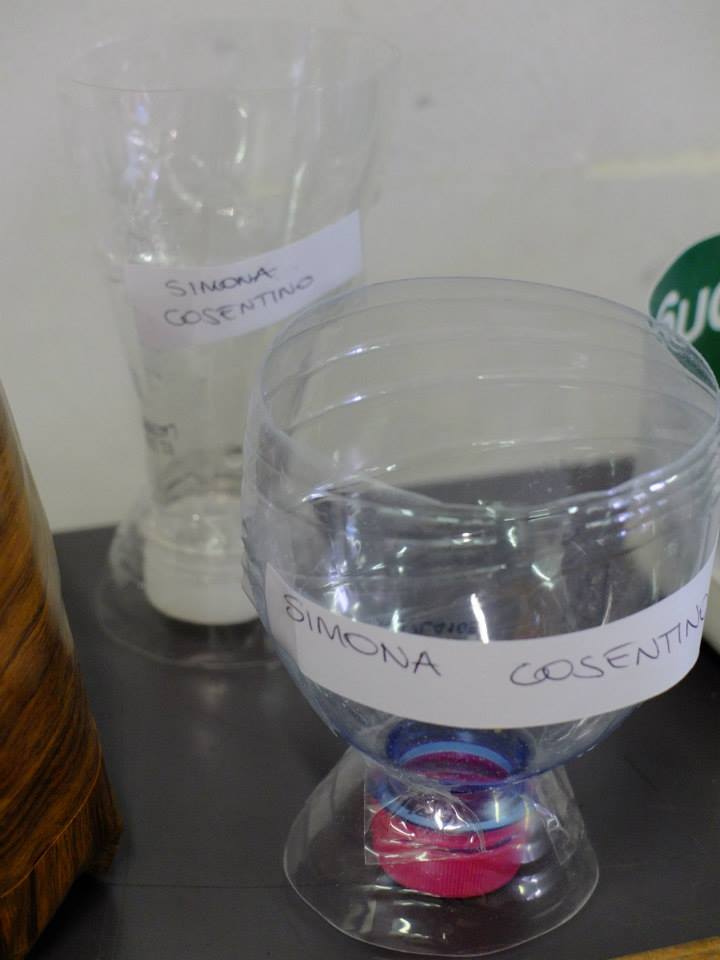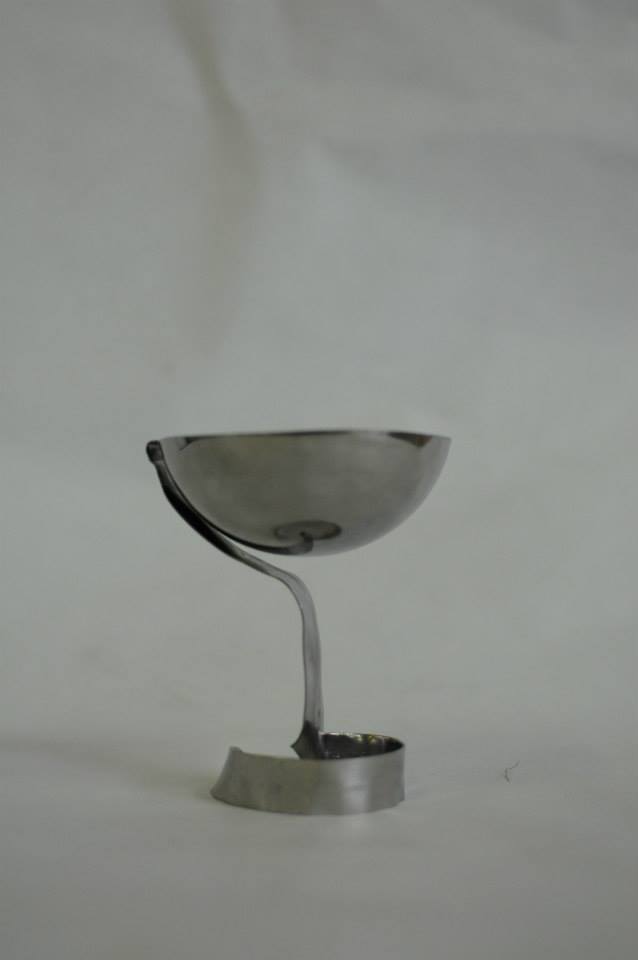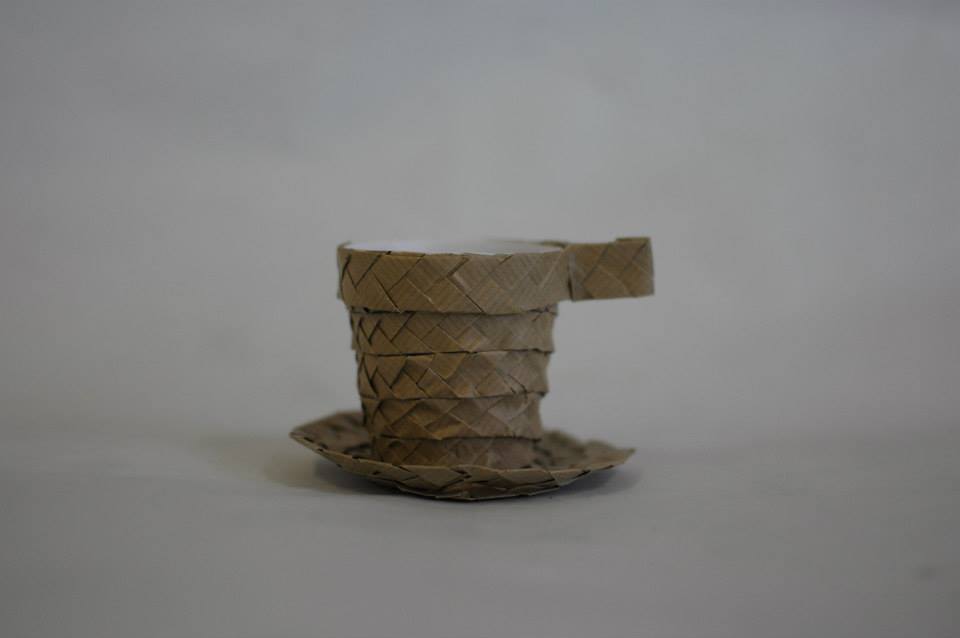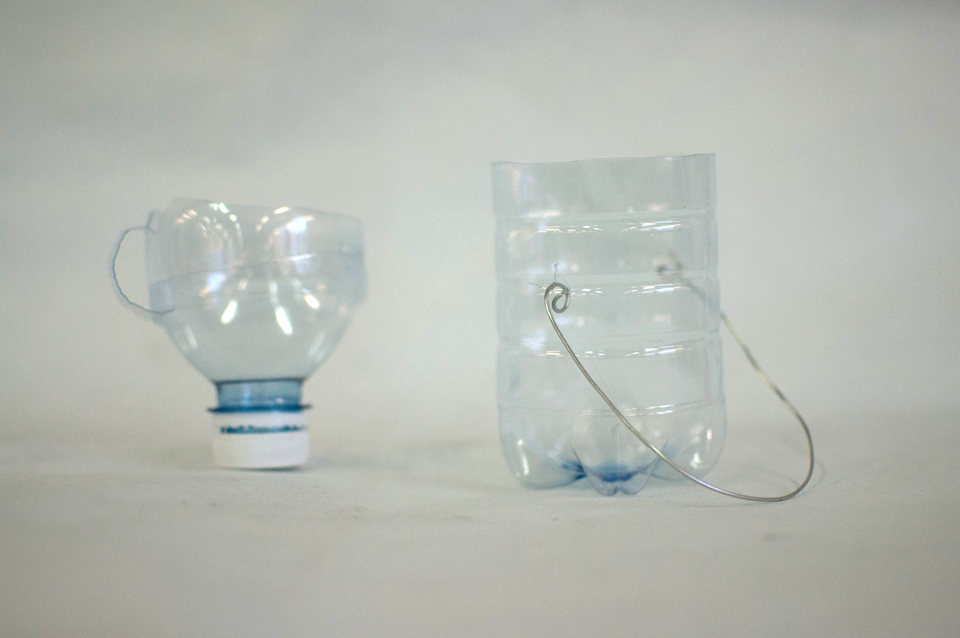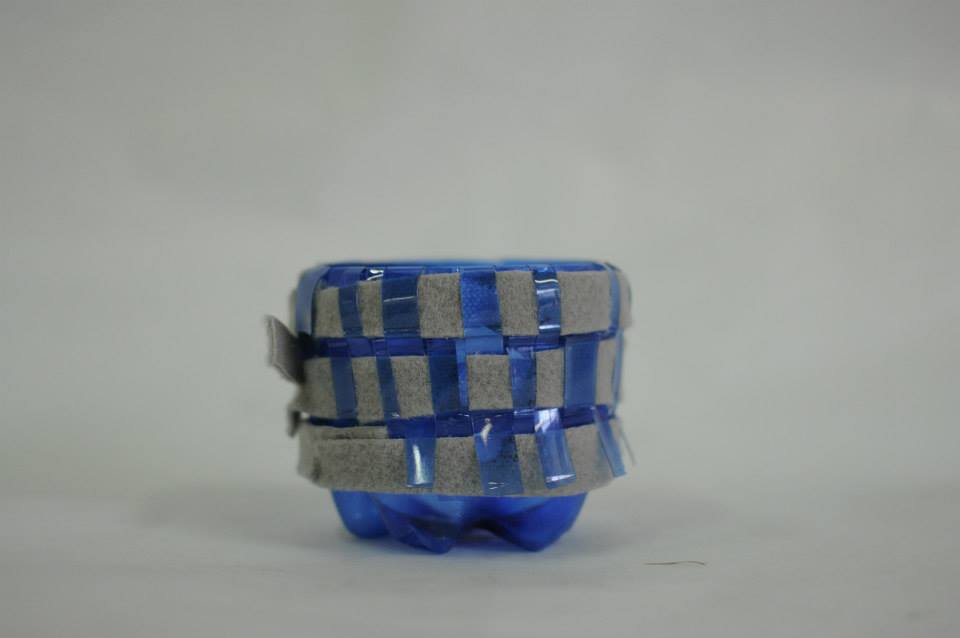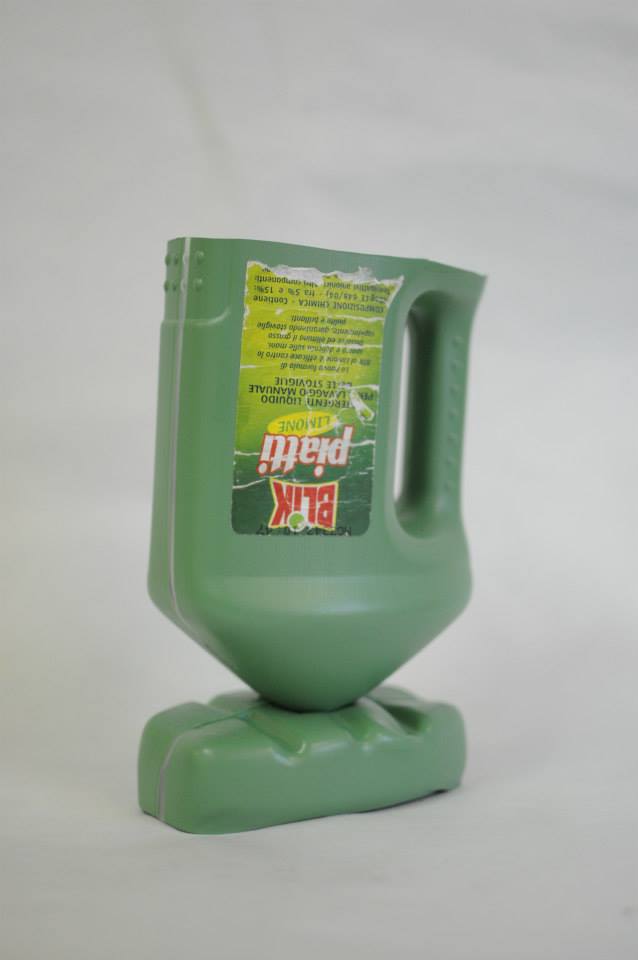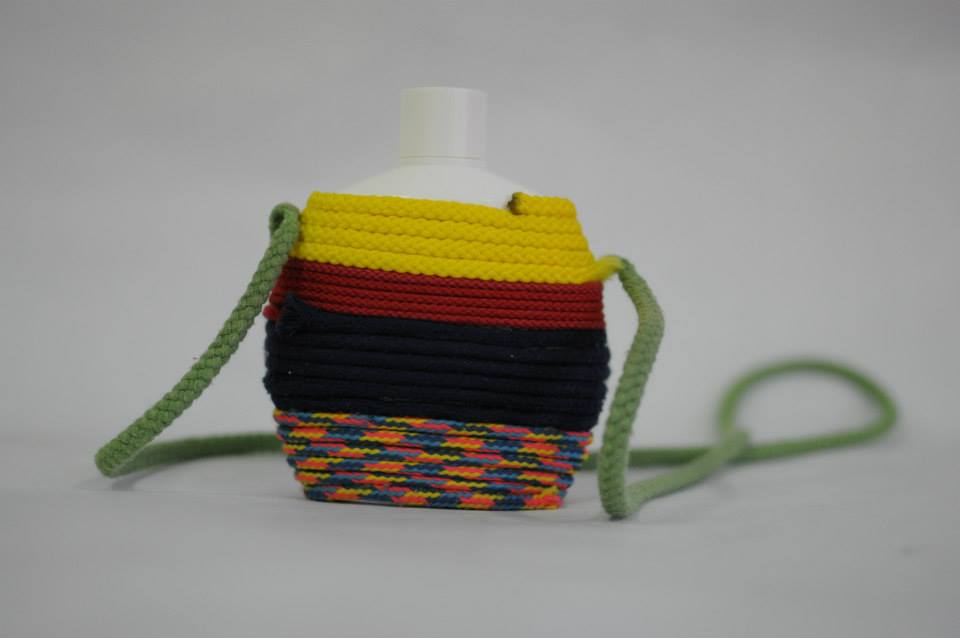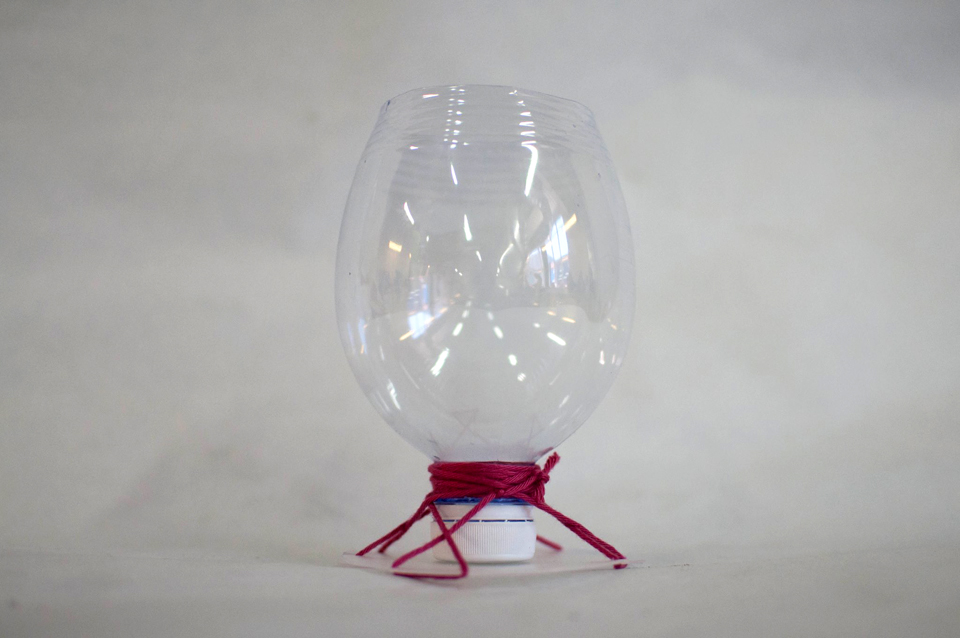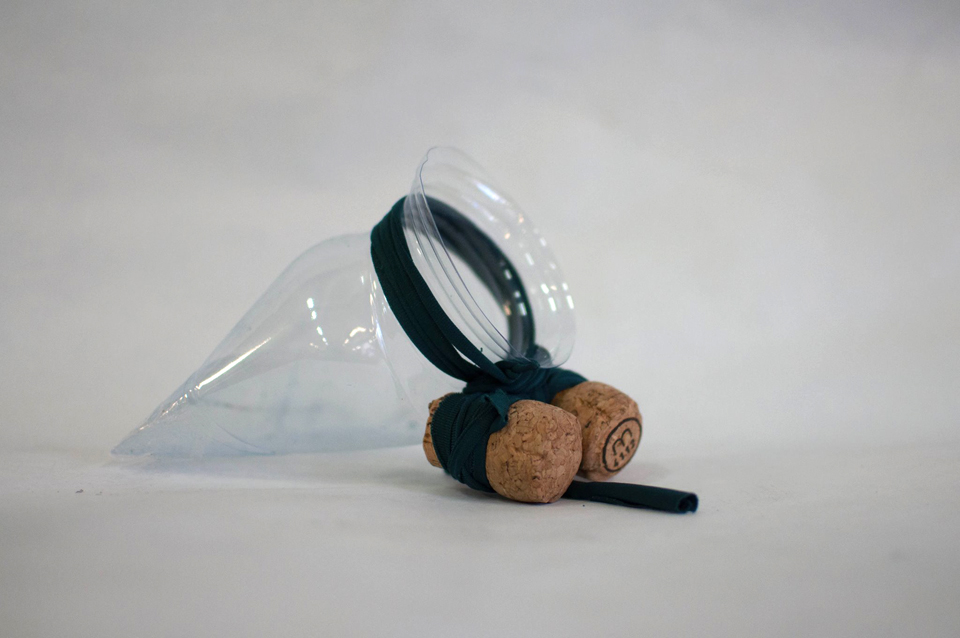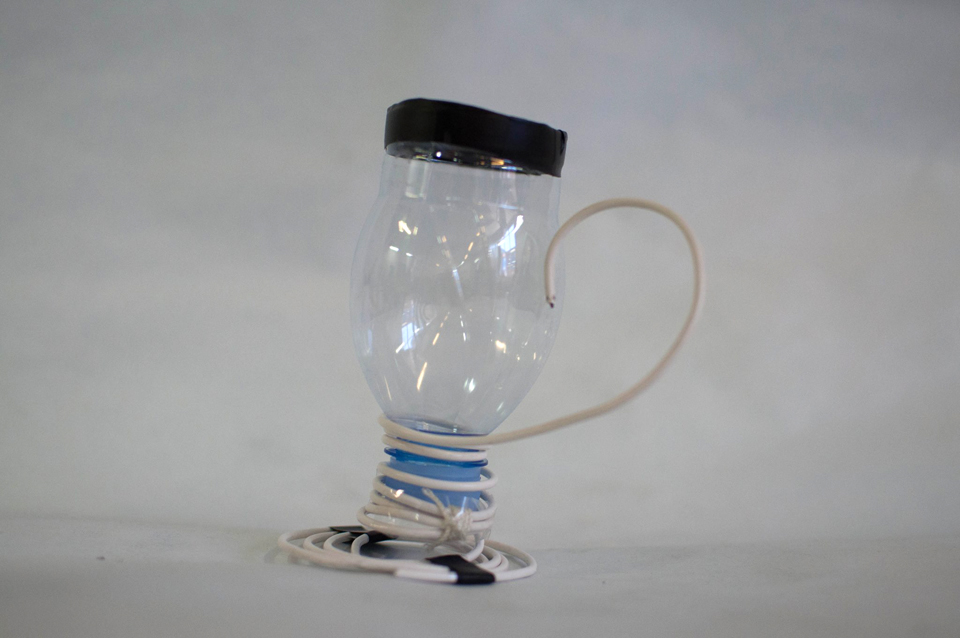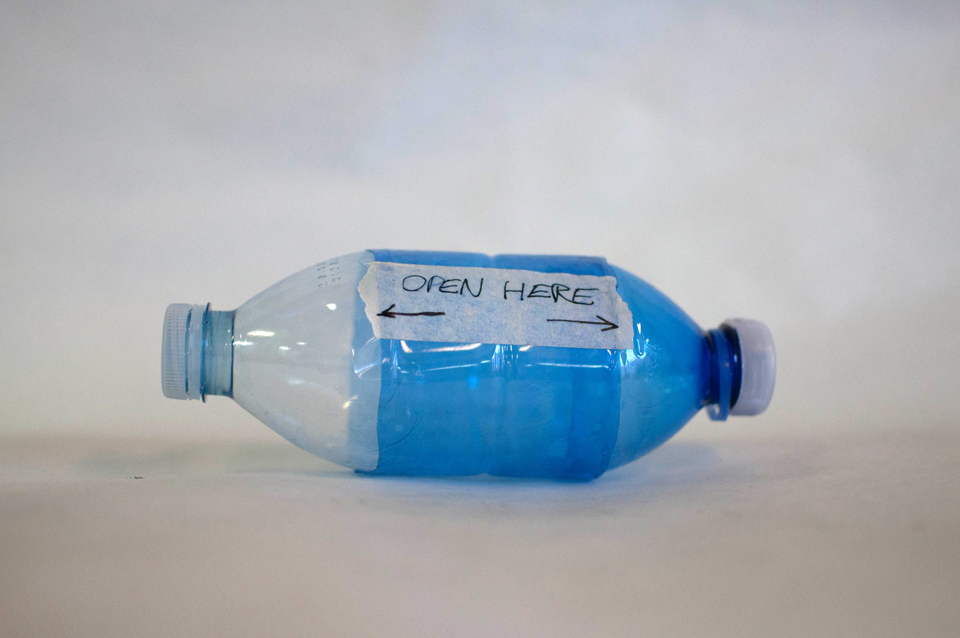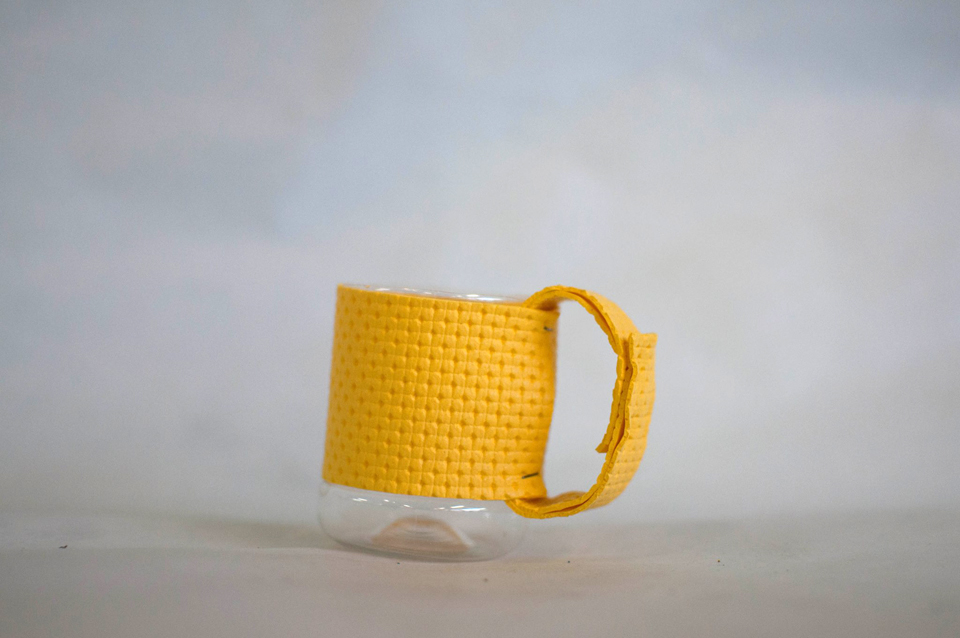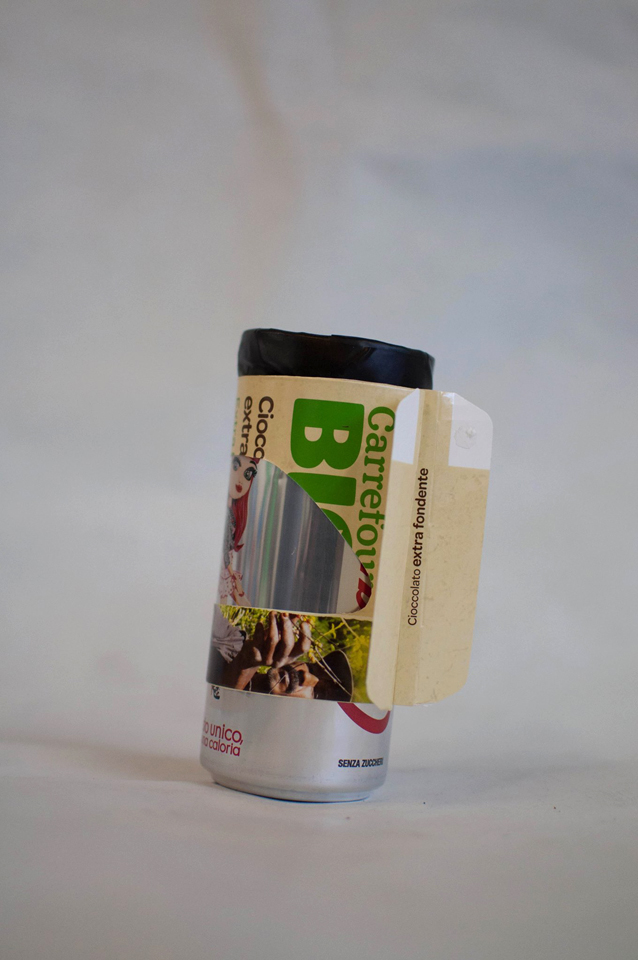1000 improvised and provisional drinking vessels
A workshop entitled “Worker, build your own machinery!” was held at Politecnico di Milano. The title of the workshop refers to a Ernesto Che Guevara’s quote in a 1961 speech: as the Republic of Cuba’s Minister of Industry, his aim was encouraging Cuban workers and technicians to face the scarcity of resources due to the country’s economical
and political crisis. The general approach he suggested to address this issue was self production of the spare parts required for productive activities: this would involve a number of strategies, such as repair, reuse and repurpose. Over time, these practices became common not only in the field of industrial production, but also in everyday life.
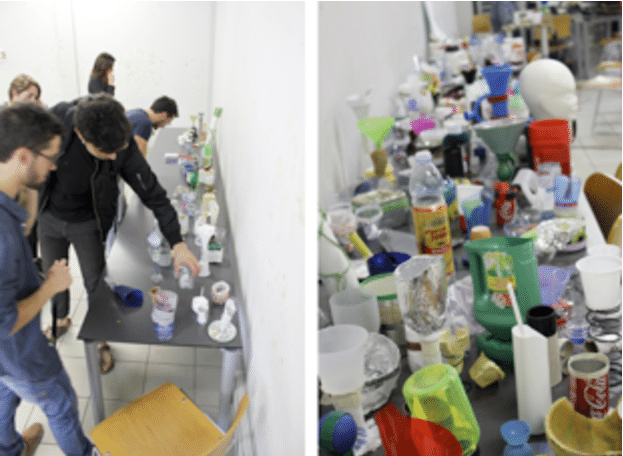
This workshop was directly inspired by the research work of Ernesto Oroza, designer and Cuban artist, who studied the changes that 50 years of isolation produced on the island’s materiality.
One glass per day
A daily exercise aimed to train each student in the practices of reuse, repurpose and improvisation. On each day, the students were asked to develop a drinking vessel in one hour using simple and provisional materials and processes. The task is aimed to drive the participant towards facing a continuous need. This will allow exploring and encouraging ideas of improvisation, re-use, reproduction, appropriation, adaptation and so on. The idea here is to look at the object as something that was never realized before and with the goal to solve (“resolver” in Spanish) a basic need: to drink. The participants considered the raw materials available in their own home and they have to work with simple tools (scissors, knife, glue…).
Conclusion
1000 improvised and provisional drinking vessels
The first exercise “One glass per day” was useful to train the research of design solutions for a repetitive need. This resulted in the creation of a collection of about 1000 solutions for designing a drinking vessel.
The exercise was very interesting because in a small time the students saw a big number of solutions and projects and they could deal and compare about them. Furthermore, they experimented the ease of building a physical model, a sensation to which they are not well accustomed.
Technological Disobedience, Cuba


was used when creating this post
PROFILE
Ernesto Oroza has been collecting examples of DIY inventions from Cuba since the 1990’s. The Soviet Union collapsed (1991) marking the end of the USSR’s aids to the small island. The Cuban government proclaimed a “Special Period” of extreme rationing and shortages. A new era of creative enterprise started dedicated to making and tinkering.
It’s a true story of people using their own creativity and ability to improvise, invent, repurpose and repair objects.
Technological Disobedience is a research blog / virtual archive for the virtual exhibition « Futurs non-conforme », in 2016.
The term “technological disobedience” was first published in Oroza’s RIKIMBILI book. Une etude sur la désobéissance technologique et quelques forms de reinvention. [A study on technological disobedience and some forms of reinvention.]

